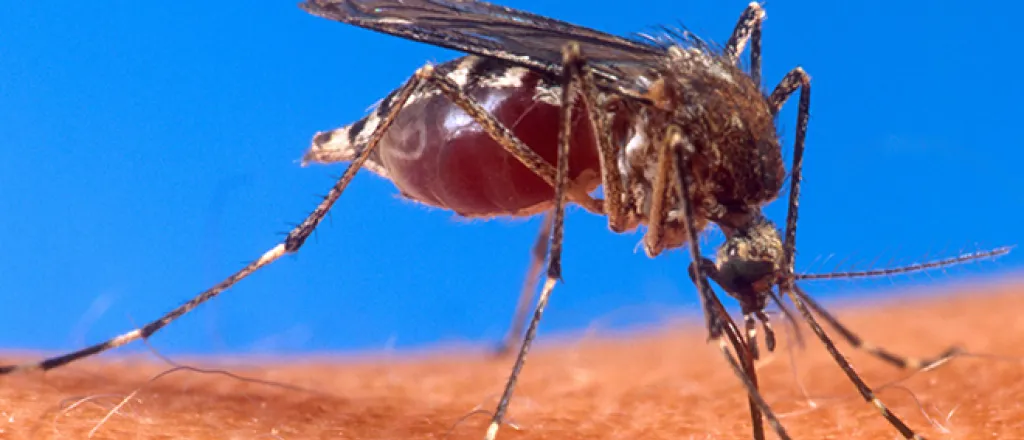
Do any of the usual insect deterrents actually work to keep bugs away from our cookouts and picnics? Gary Crawford has this report.
PARTICIPANTS: Gary Crawford and Kait Chapman with the University of Nebraska.
Transcript
[MUSIC] Oh, happy days.
No, it's not here yet, but many of us are getting the backyard grills uncovered, cleaned up, and ready for those outdoor picnics and cookouts, and also, unfortunately, gearing up for the annual battles with such insect pests as...
Mosquitoes, wasps, and bees.
Oh my.
Some people don't mind the insects horning in on things.
After all, we're the ones invading their space.
But for some...
I hate bugs.
Any kind of bugs.
And so, many of us go out armed to the teeth with all kinds of devices, all kinds of candles and foggers and zappers, you name it.
Yeah, there's a lot of products out there, and lots of them don't work.
[BEEP] Uh-oh, that's Kate Chapman, insect expert, University of Nebraska.
Yes, the home catalogs are full of products, such as devices that send out those ultrasonic sound waves that are supposed to repel the insects.
She says studies show those don't work.
Now, some folks have those electric bug zappers, and she says, yes, they might zap a few mosquitoes and wasps, but also zap many other beneficial insects that don't do anybody any harm.
Now, of course, millions of us burn a lot of citronella candles and such, which are supposed to keep the mosquitoes away, but according to Kate Chapman...
There's a lot of lab studies that show citronella can have a repellent effect, but those are lab studies with high concentrations of citronella, and we're not getting those same concentrations in the candles.
And so, while we're getting some out there, and maybe there's a little bit of effect, it's just not enough.
So, is there anything that will keep our cookout reasonably free of mosquito bites?
Kate says there is something that we can do days ahead of the cookout.
The best thing you can do is if there's any standing water on your property or around is dump it.
So, mosquitoes, the first part of their life cycle, the larvae, they actually live in the water.
So, they need standing water.
Dump any that you can find.
And there are some products you can safely use in fish ponds and such to keep the mosquito population down.
And here's something else to try at that cookout.
Now, let's turn it on here, this fan.
Fans work great, too.
A lot of these insects, like flies and mosquitoes, they're not great flyers.
So, if you get like a standing fan that you can put out, you're not only keeping yourself cool in the summer, but you're also going to deter these flying insects, too.
And finally, there's some personal repellents that do help.
You know, they're approved.
They work really well.
We have DEET.
We have picaridin, permethrin for clothing.
And I think a third one that was just recently registered and approved, it's called oil of lemon eucalyptus.
So, that's another thing that you can wear on your skin that has a really good repellency effect as well.
Now, Kate says nothing's going to work 100 percent, especially repelling mosquitoes, wasps and bees.
Oh, my.
I hate bugs.
I know you hate bugs.
Gary Crawford reporting for the U.S. Department of Agriculture.
Crazy little bugs.








